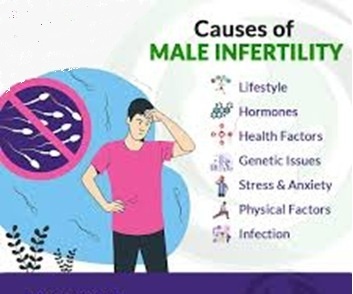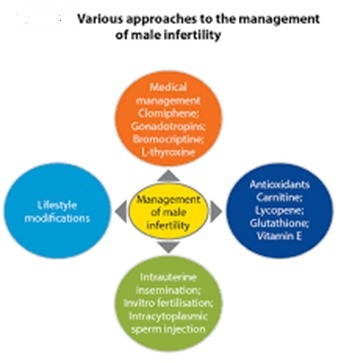Table of contents
Understanding Male Infertility
The Emotional Impact of Male Infertility
Introduction
Male infertility is a very touchy subject that is, for the most part, often kept in the dark. It is one of the major issues faced by an innumerable number of men throughout the world. The psychological and emotional impact of infertility is very intense. Men find it hard to deal with it. They are also vague with many unanswered questions that keep torturing them all the time, and they also struggle with feelings of shame, guilt, and inadequacy. Still, it is very important to begin talking about male infertility, thereby providing the necessary help and support
Understanding Male Infertility

Male infertility is a very touchy subject that is, for the most part, often kept in the dark. It is one of the major issues faced by an innumerable number of men throughout the world. Male infertility is a very touchy subject that is, for the most part, often kept in the dark. It is one of the major issues faced by an innumerable number of men throughout the world.
There are many reasons for male infertility. Including low sperm count, blockages, or hormonal imbalances, and even lifestyle choices such as smoking, drinking too much, and exposure to toxins, play their part in determining infertility. It is also true that in most cases, it is very hard to pin the blame on the male for being, in virtually all cases, the infertile one
Causes of Male Infertility

There are many causes why a man might struggle with infertility, including:
Genetic issues: Conditions like Klinefelter syndrome can disrupt sperm production.
Infections: STDs, epididymitis, and orchitis can cause damage and swelling in the reproductive tract, making it difficult for sperm to be delivered.
Hormonal problems: Low testosterone, issues with the pituitary gland, and prolactinoma can interfere with sperm production and overall fertility.
Blockages: Problems like a blocked vas deferens, varicoceles, and undescended testicles can hinder a man’s ability to
The Emotional Impact of Male Infertility

Morning experiencing infertility as a complication is frequently associated with a great deal of distress among the male population; feelings can be as follows:
– Feelings of shame and guilt: Men may still be hurt inside and feel like they are failing as a partner or future father.
– Anxiety and depression: The infertility-related uncertainty and stress can cause anxiety and depression.
– Loss of masculinity: It is reported in the literature that men may suffer the loss of masculinity because of infertility and a reduction in self-esteem.
Breaking the Silence
The procedure needed to obliterate the concealment of the infertility of males calls for a sympathetic approach. The way forward in this regard may be
– Counseling and support groups: Setting apart a room for individuals to let out their experiences and get in touch with people who face similar challenges can help away the pain that arises within men.
– Education and awareness: Making men aware of the issue of male infertility, which in turn will also remove the previous ideas about this issue.
– Involving men in fertility care: Exhorting men to play an active part in fertility care and treatment to achieve better outcomes.
Strategies for Support

Here are some ideas that provide support to infertile men effectively:
(FELICIA) Men can do a counseling approach called FELICIA that helps them not only to deal with the psychological trauma and shame that are related to infertility but also to recover from it.
(For example): A sort of psychological counseling that enables men to overcome the emotional shock and shame caused by the fact of infertility.
– Group therapy and support programs: An instance of a group therapy program named “Oh Happy Day Classes” located in Ghana, which provides a free atmosphere for men and women to articulate their experiences and gain emotional comfort from this.
– Telephone hotlines and online support: What are the accessible ways for men who cannot manage infertility to be supported?
Conclusion
Men are silent about their childlessness. They demand sympathy, an open mind, and prompt help from society. If men feel a secure and non-discriminatory place where they may share their experiences, we can assist them in their emotional and psychological struggle with infertility.


Leave a Reply